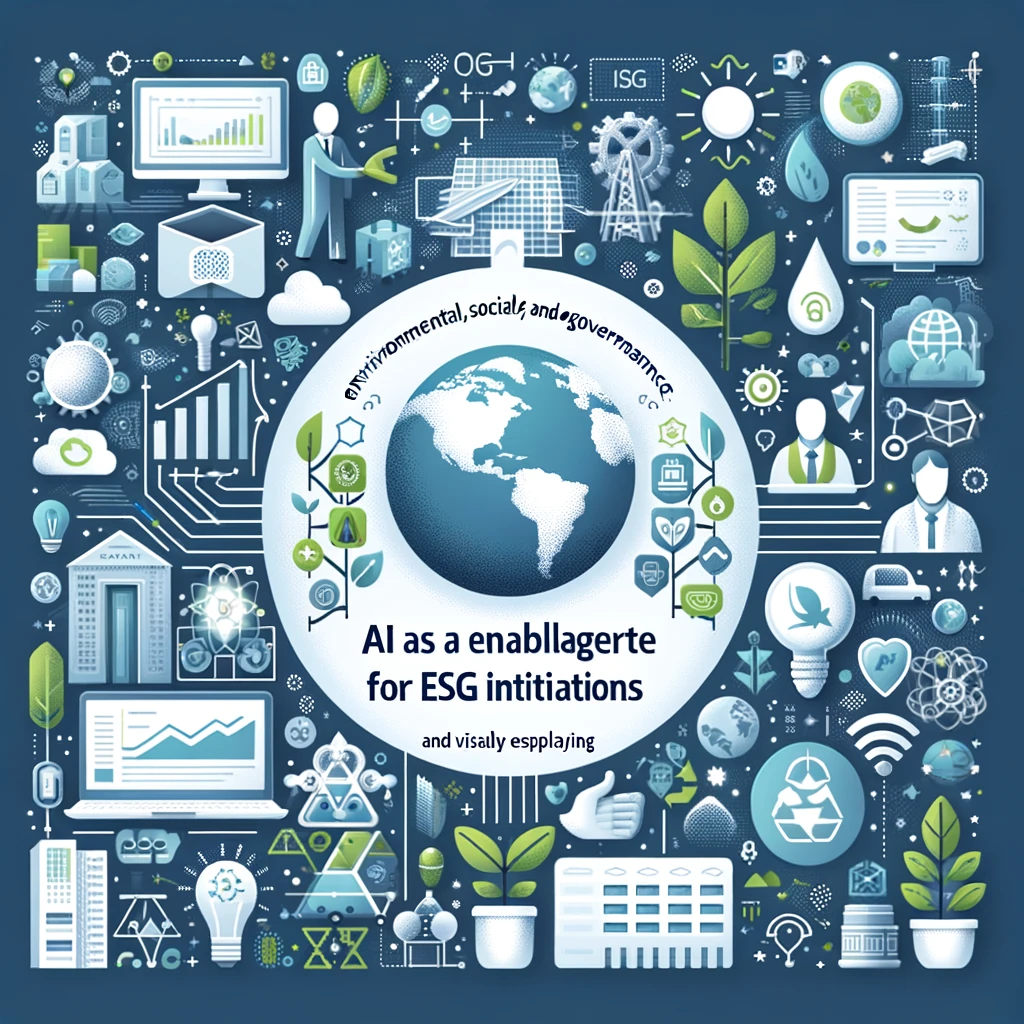
Blog Article: AI as an Enabler for ESG Initiatives
In the realm of Environmental, Social, and Governance (ESG) initiatives, [...]
In the realm of Environmental, Social, and Governance (ESG) initiatives, technology plays a pivotal role. Artificial Intelligence (AI), coupled with the Internet of Things (IoT), stands at the forefront of this transformative era. These technologies not only drive efficiencies but also propel ESG initiatives to new heights. This article explores how AI’s data collection and analysis capabilities, powered by IoT, are instrumental in advancing sustainability and responsible governance.
AI: The Catalyst for ESG Data Intelligence
AI’s ability to process and analyze vast datasets is revolutionizing how organizations approach their ESG commitments. By harnessing AI, companies can:
- Identify and Quantify ESG Risks: AI algorithms sift through data to pinpoint ESG risks, providing insights that guide strategic decision-making.
- Monitor Sustainability Goals: Automated AI systems track progress towards sustainability targets, ensuring accountability and transparency.
- Enhance ESG Reporting: AI-powered analytics enhance the accuracy and depth of ESG reporting, making it easier for stakeholders to assess a company’s performance.
IoT: Enabling Real-Time Data Collection for AI
The IoT serves as AI’s eyes and ears, collecting real-time data from a network of interconnected devices. This synergy enables:
- Environmental Monitoring: IoT sensors monitor air and water quality, energy usage, and waste management, providing the raw data AI needs to identify trends and anomalies.
- Social Impact Assessment: IoT devices track working conditions, health and safety incidents, and community engagement efforts, offering valuable insights into a company’s social impact.
- Governance Oversight: By monitoring compliance and operational processes, IoT data helps ensure that governance standards are upheld.
Impact Areas for ESG Initiatives
Within the ESG framework, several areas stand out for their potential climate impact:
- Climate Action: AI and IoT can optimize energy consumption, reduce emissions, and support renewable energy integration.
- Sustainable Agriculture: Technology-driven approaches to farming can enhance food security while minimizing environmental footprints.
- Waste Reduction: AI can streamline waste management processes, from collection and sorting to recycling, significantly reducing landfill waste.
Navigating the Risks
While AI and IoT offer immense potential, they also pose challenges:
- Data Privacy and Security: Safeguarding the privacy and security of the data collected through IoT devices is paramount.
- Accuracy and Bias: Ensuring that AI algorithms are accurate and free from bias is crucial to making fair and effective ESG decisions.
AI and IoT are not just tools for operational efficiency; they are enablers of a more sustainable, equitable, and well-governed future. By integrating these technologies into their ESG strategies, organizations can make more informed decisions, achieve their sustainability goals, and lead the charge towards a more responsible corporate world.
Share this article
Follow us
A quick overview of the topics covered in this article.
Latest articles
April 29, 2025
April 22, 2025
April 9, 2025



